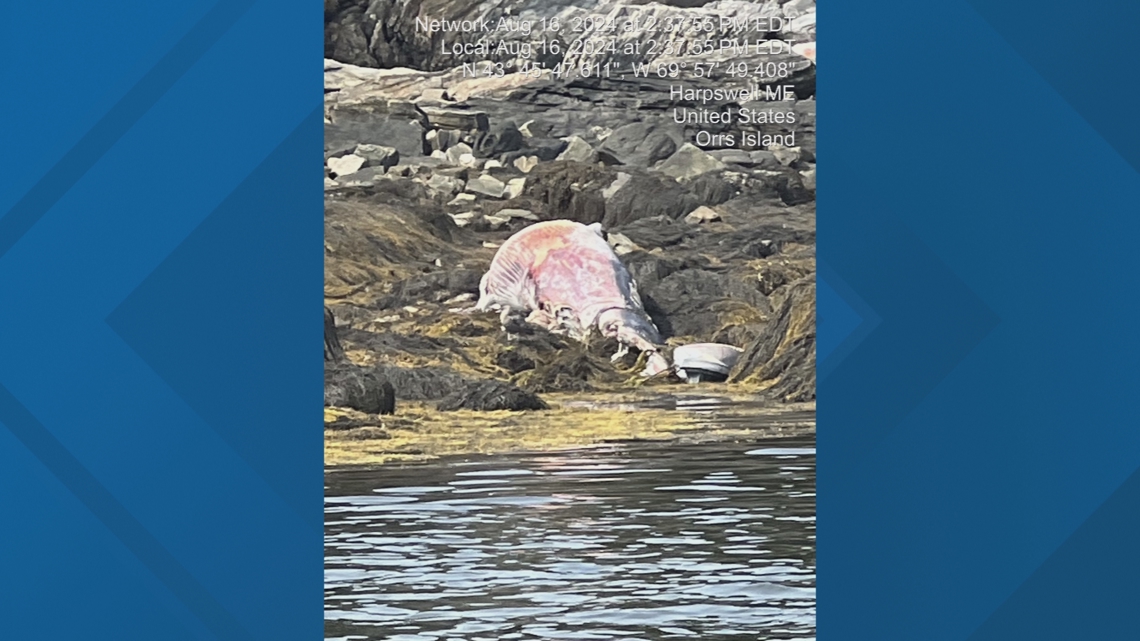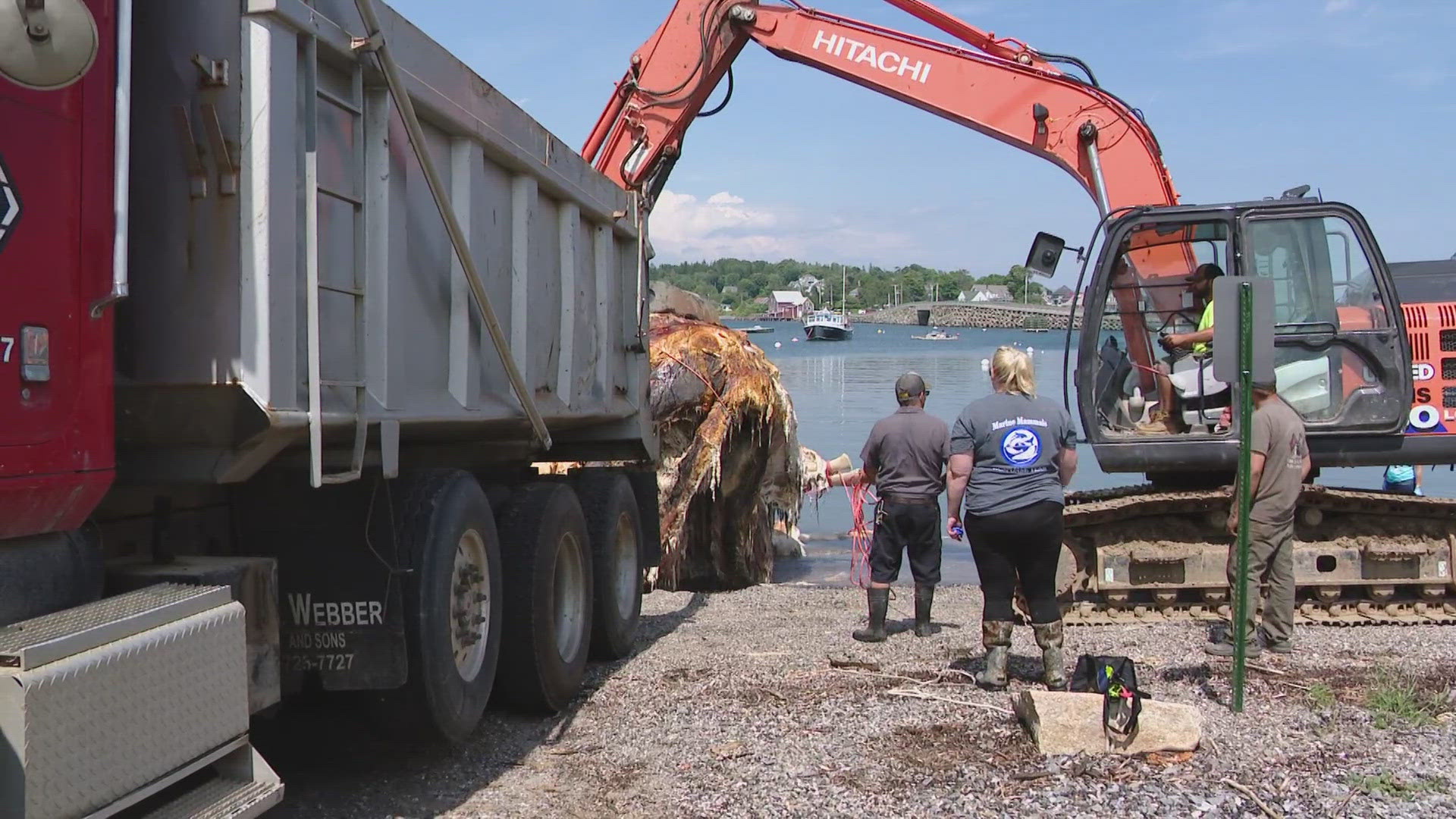HARPSWELL, Maine — Dead whales are something that's becoming more common in Maine's waters.
Right now, there is a dead minke whale on a property in Harpswell, according to harbormaster Paul Plummer. It's at least the fourth dead whale found in Maine so far this year.
It comes after the humpback whale known as "Chunk" was pulled from Casco Bay in June tangled in fishing gear. The National Oceanic and Atmospheric Administration (NOAA) said the whale drowned.
That same month, another dead humpback whale was removed from the shores in Harpswell. Due to its condition, NOAA said a cause of death couldn't be determined.
Earlier this August, a dead humpback whale nicknamed "Lollipop" was removed in Kennebunk after first being spotted off the coast of Wells. This whale was too decomposed to determine its death.
As of now, it's unclear how the minke in Harpswell died. It's fate will be the same as the three whales before it. It will be taken to a farm to decompose. But why won't it be towed out to sea to break down?
"Dealing with a dead stranded animal is actually one of the more challenging parts of marine mammal stranding response," Sarah Wilkin, the marine mammal health and stranding response program manager at NOAA Fisheries, said.
When it comes to disposing of a whale carcass in Maine, Wilkin said there are two options— leaving it in the environment or taking it out to be composted.


"It depends a lot on the size of the animal, the condition of the animal, the available resources, the land where it landed, and actually towing offshore is logistically challenging," Wilkin added.
In Harpswell, the town has opted for the compost option. Plummer said they didn't want to attract predators near popular tourist spots and have the smell of a rotting whale on its beaches. He also said there would be challenges with towing it back out to sea.
"In order to do that, per the requirements, you'd have to get a full-size jersey barrier or something with that kind of weight out with you so that the carcass would actually sink to the bottom," he told NEWS CENTER Maine.
Plummer said that would be a real challenge with just a 20-foot skill.
"A jersey barrier would sink that boat," he added.
In addition to it being a challenge, the harbormaster said there's too much liability in bringing and leaving something out at sea.
It's not just two whales Plummer has had to deal with. He said there's also a dead shark pushing 20 feet that needs to be removed from someone's property. Plummer added that all these deaths are something he's never seen before and could take a toll on the community if it continues.
"The bill to remove this last whale was $1,000. In the scheme of things from a public safety hazard, that’s not bad, but if it were to continue, it could add up," he explained.
From NOAA's perspective, this is all common. Wilkin said for the past seven years, there have been ongoing, unusual mortality events involving whales.
"We are actively investigating them," she said.
Wilkin said some deaths are linked to human activity and infectious diseases.

